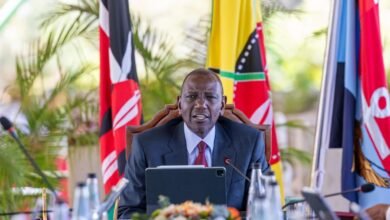
Tanzania has issued a comprehensive ban on non-citizens engaging in 15 categories of business activities, marking a significant shift toward economic protectionism that could strain East African regional integration efforts and affect thousands of cross-border entrepreneurs.
The directive, officially titled “The Business Licensing (Prohibition of Business Activities for Non-Citizens) Order, 2025,” was signed by Minister of Industry and Trade Selemani Saidi Jafo and took effect on July 29, 2025. The order prohibits foreigners from operating in sectors ranging from wholesale and retail trade to mobile money transfers, tour guiding, and small-scale mining.
Comprehensive Business Restrictions
The banned activities for non-citizens include wholesale and retail trade (excluding supermarkets and specialized product outlets), mobile phone and electronic device repairs, salon businesses (unless for hotel or tourism purposes), home and office cleaning services, small-scale mining, postal and parcel delivery services, tour guiding, radio and television station operations, mobile money transfers, real estate brokering, clearing and forwarding services, farming and crop purchasing, gambling machine operations outside casinos, and ownership of micro and small industries.
Licensing authorities have been directed to immediately cease issuing or renewing business licenses for non-citizens in these prohibited sectors. Non-compliance carries severe penalties, including fines of up to 10 million Tanzanian shillings (approximately KES 500,00) and imprisonment for up to six months. Additionally, violators risk having their residence permits and visas revoked.
East African Community Integration at Risk
This policy directly contradicts the East African Community (EAC) Common Market Protocol, which guarantees free movement of persons, labour, services, and the right of establishment across member states. Article 104 of the EAC Treaty specifically underscores the region’s commitment to fostering free movement and ensuring rights of establishment and residence for citizens within the community.
The EAC Common Market Protocol was designed to accelerate economic growth through four key freedoms (free movement of goods, persons, labour/workers, and capital) and two rights (right of establishment and right of residence). These restrictions significantly undermine the protocol’s objectives of creating a single market for goods, services, capital, and labour across the region.
Human Rights Concerns and Cross-Border Tensions
Tanzania’s recent actions extend beyond business restrictions to include concerning human rights violations against Kenyan and other East African citizens. In May 2025, Kenyan human rights defender Boniface Mwangi was detained, tortured, and subsequently dumped at the Kenya-Tanzania border after attempting to observe the treason trial of Tanzanian opposition leader Tundu Lissu.
The Kenya Human Rights Commission strongly condemned these actions, noting they violate Article 104 of the EAC Treaty and constitute serious breaches of international human rights obligations. Several other prominent Kenyans, including Hanifa Adan, former Chief Justice Willy Mutunga, and Hussein Khalid were also denied entry or deported by Tanzanian authorities.
These incidents reflect a broader pattern of digital repression and authoritarianism in Tanzania, including social media shutdowns and restrictions on civil society activities.
Economic Impact on Regional Trade
The restrictions threaten to disrupt established trade relationships between Tanzania and Kenya, which have made significant progress in eliminating trade barriers. Over the past four years, the two countries eliminated 50 trade barriers, reducing the total from 65 to just 15. Tanzania emerged as Kenya’s leading supplier of raw materials in Africa, with bilateral trade reaching substantial volumes.
According to a 2023 East African Business Council study, the ease of doing business within the EAC region was already ranked as only “moderate,” with various challenges including government operations, trade restrictions, and cross-border payment difficulties. Tanzania’s new restrictions could further complicate these challenges and potentially trigger retaliatory measures from other EAC member states.
Reciprocal Risks for Regional Integration
If other EAC countries implement similar protectionist measures in response, the region could face a significant setback in integration efforts. Kenya’s recent move toward visa-free access for most African countries contrasts sharply with Tanzania’s restrictive approach, highlighting divergent regional strategies.
The restrictions could particularly impact Kenyan businesses operating in Tanzania’s retail and service sectors, potentially forcing thousands of entrepreneurs to relocate or cease operations. This scenario could reduce employment opportunities, limit technology transfer, and decrease overall economic dynamism in affected sectors.
Technology Sector Implications
For the technology sector, these restrictions could limit cross-border fintech operations, mobile money services, and digital platform businesses that rely on regional scale. Companies like those in Tanzania’s emerging tech hub initiatives could face reduced access to regional talent and markets.
The restrictions also contradict broader continental initiatives like the African Continental Free Trade Area (AfCFTA), which aims to create a single market for goods and services across Africa. Tanzania’s protectionist stance could undermine the country’s participation in these larger economic integration efforts.
Looking Forward
While Tanzania joins other African nations like South Africa, Ghana, and Nigeria in implementing protectionist measures to reserve certain business spaces for citizens, the timing and scope of these restrictions raise concerns about their impact on regional integration and economic cooperation.
The success of regional integration depends on mutual trust, political will, and commitment to agreed protocols. Tanzania’s current approach risks eroding these foundations and could prompt other EAC member states to reconsider their own openness to cross-border business activities.
For the East African Community to maintain its integration momentum, member states must find a balance between protecting local economic interests and honoring regional commitments to free movement and establishment rights. The resolution of this tension will significantly influence the future of economic integration in the region.






